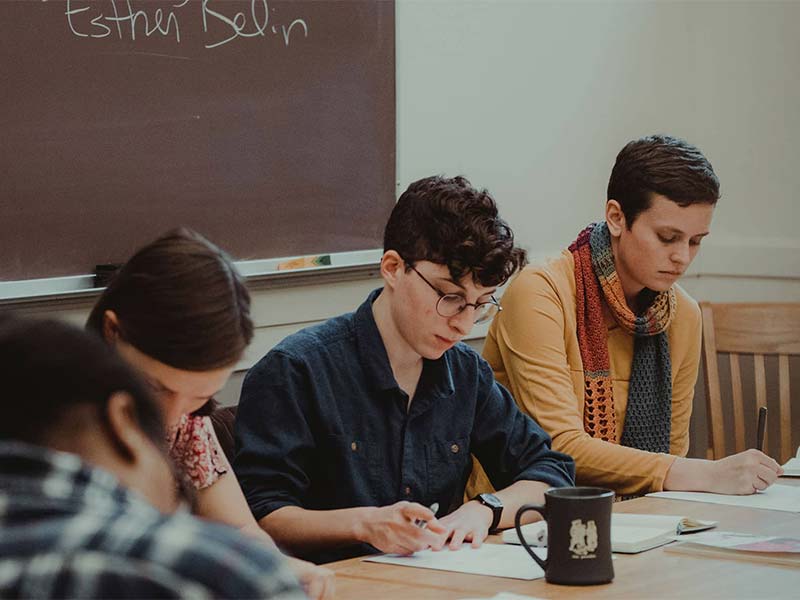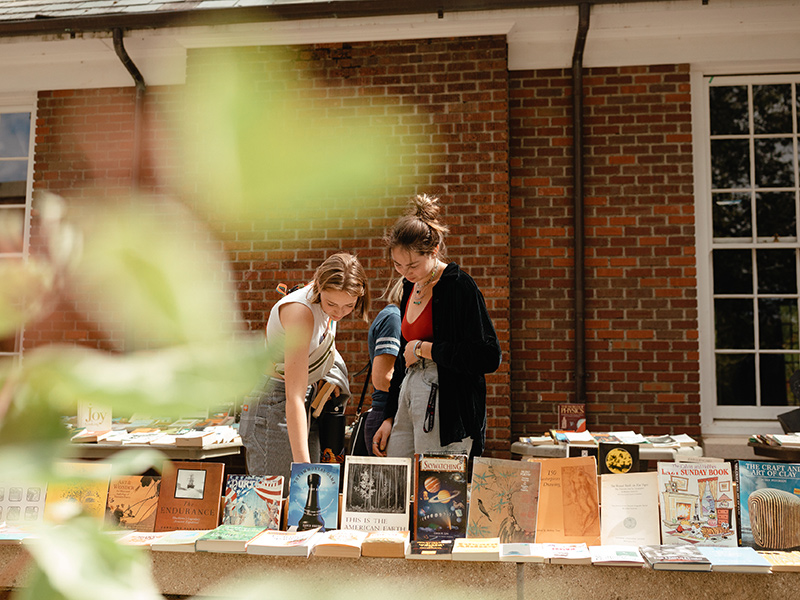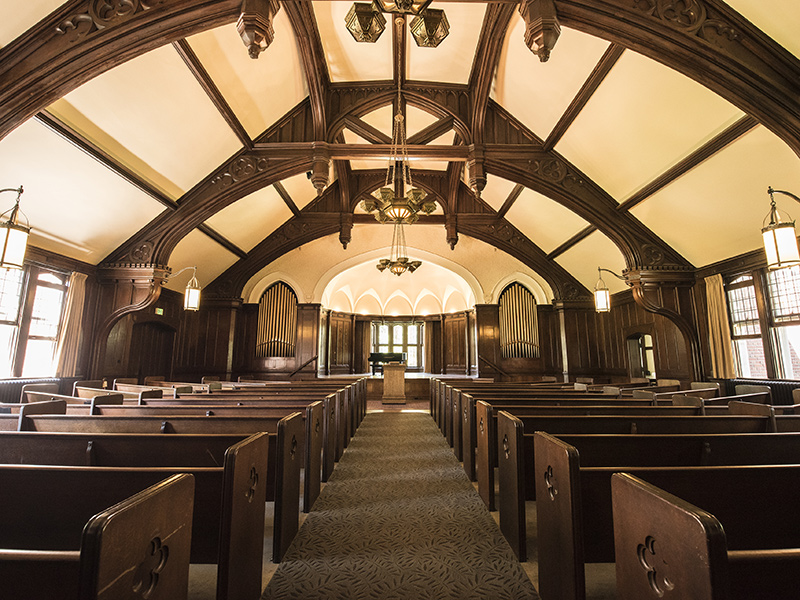What You’ll Study in the Bachelor’s Degree in History-Literature
The history-literature major supports a more tailored, robust exploration of both subjects than would be possible if you majored in one or the other. In the history-literature program, you will develop the analytical skills necessary to study the relationship between past and present and to utilize literature for the illumination of history and vice versa. Choose to study a wide range of periods, languages, and literary canons, or focus on one while applying a diversity of approaches to your inquiries, including social, intellectual, economic, cultural, gender, legal, and imperial.
Roadmap to the BA in History-Literature at Reed
Students who wish to combine history and literature in a manner that isn’t feasible under the requirements of the Division of History and Social Sciences or the Division of Literature and Languages can pursue an interdisciplinary course of study. Students have the flexibility to take classes in both literature and history departments in working up to their petition to the history-literature program.
Year One
Start Exploring
The history and literature departments both emphasize a diversity of approaches to research and criticism. Dive into the options with introductory classes that span various periods, languages, and cultures.
Start developing your ability to conduct independent inquiry and fashion your own analytical and critical interpretations of history and literary scholarship. Meet early with a member of the history-literature committee to consider how your thesis is best suited for this interdisciplinary program. Consider options for studying abroad. History-literature majors are encouraged to do so for one semester in their sophomore or junior year.
Humanities 110 is an important component to every student’s first year, offering an interdisciplinary view of human society that can be a platform to further exploration of both history and literature.
Why Study History-Literature at Reed College?
Experienced Faculty in an Interdisciplinary Program
Learn from passionate, knowledgeable professors in both history and literature.
- Professor Michael Breen, history & humanities: early modern French and European social, political, and cultural history
- Professor Jacqueline Dirks, history & humanities: American social and cultural history, US women’s history
- Professor David T. Garrett, history & humanities: Latin America and early modern Spain
- Professor Benjamin Lazier, history & humanities: modern Europe, intellectual history
- Professor Margot Minardi, history & humanities: early American republic
- Professor Diego Alonso, Spanish & humanities: aesthetics, rhetoric, and politics
- Professor Ann Delehanty, French & humanities: medieval and early modern periods
- Professor Jay Dickson, English & humanities: British 21st-, 20th-, and 19th-century fiction
- Professor Katja Garloff, German & humanities: modern German literature, German Jewish culture, and film and media studies
- Professor Catherine Witt, French & film and media studies: poetry and poetics, theatre, and critical theory
Enthusiastic Support of Individualized Coursework
Once you’ve demonstrated the necessity of a history-literature major to support your intended topic of expertise, staff in both history and literature can provide a wide range of insight, expertise, and support. Whether your proposed research leans more towards history or literature, professors and peers across departments will enrich your pursuits and challenge you to push them further.



